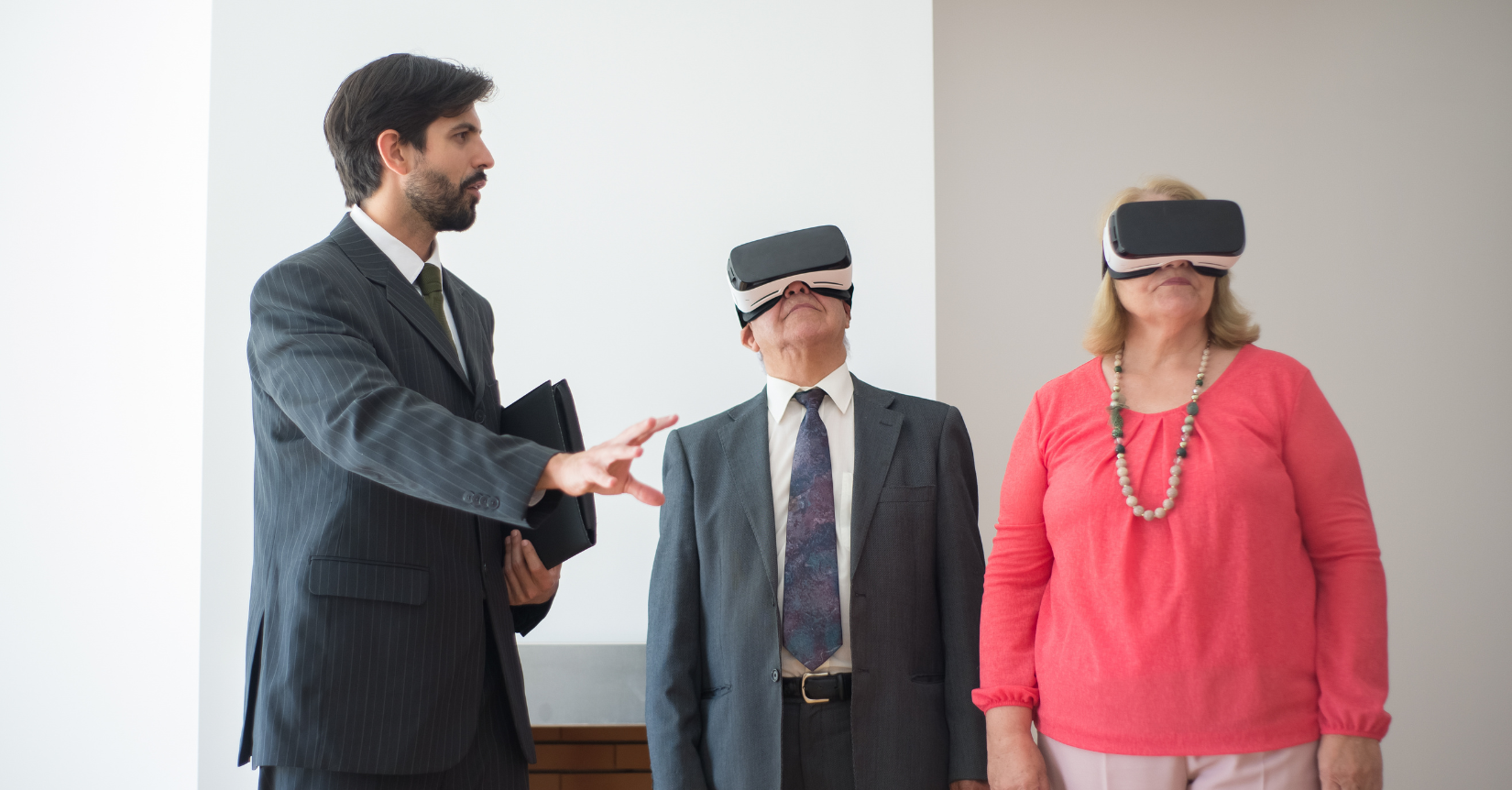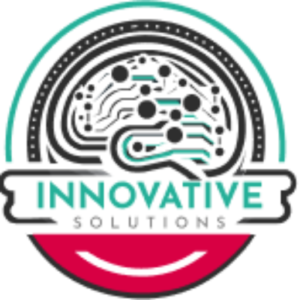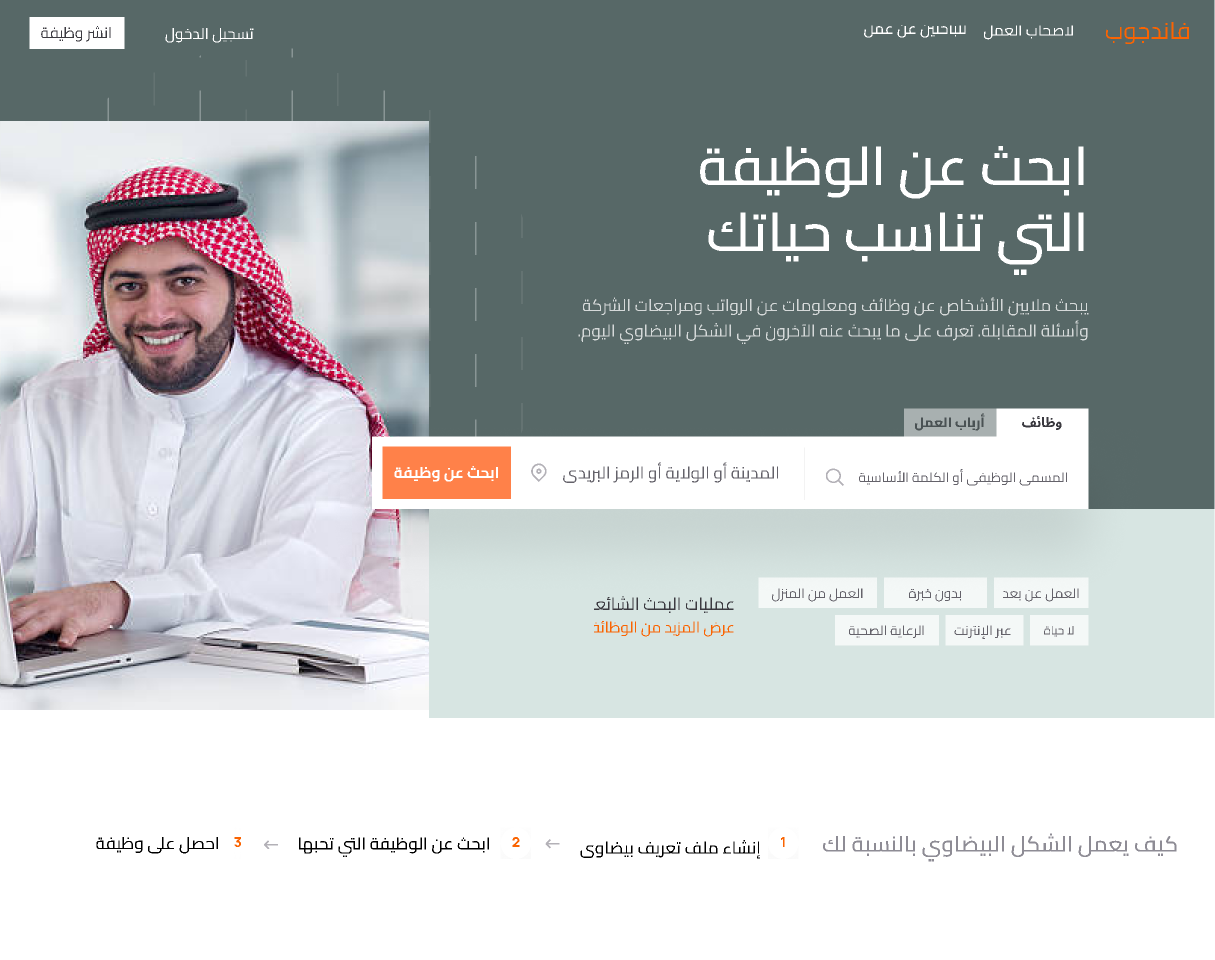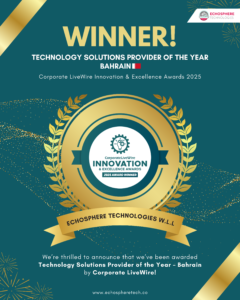The Gulf’s Digital Renaissance: AR/VR, the Metaverse and Web3 in Bahrain
The Middle East’s Gulf states are rapidly embracing immersive technologies to diversify beyond oil. Visionary leaders in the UAE, Saudi Arabia, and Bahrain are investing in AR/VR, metaverse experiences and Web3 infrastructures to spur new industries. Industry analysts project these technologies will drive a $1 trillion commerce opportunity by 2025[1]. In fact, a recent Accenture study found 55% of consumers want to be active metaverse users and 89% of C-suite executives believe the metaverse is critical for future growth[1]. Gulf governments agree: Dubai’s Metaverse Strategy aims to add 40,000 jobs and $4 billion to its economy by 2026, while Saudi Arabia and Qatar are likewise launching virtual platforms for education and culture[2][1]. Bahrain, though smaller, is positioning itself as a regional innovation hub. Its Digital Innovation Expo highlighted how AR/VR “drew major attention” among youth, from gaming to immersive learning[3]. Bahrain’s forward-looking ecosystem – with supportive regulators and funding agencies – is fertile ground for entrepreneurs to leverage these trends[4][5].
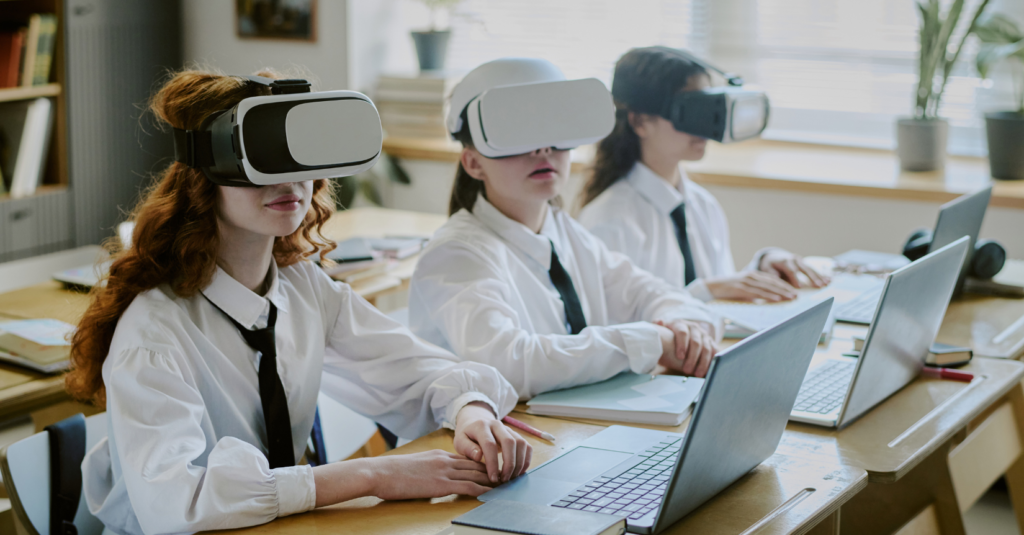
Immersive Education: Bridging Learning and Reality
Bahrain is modernizing education through immersive tech. It has rolled out VR labs in schools and universities, equipping classrooms with headsets and simulations. These “virtual reality labs” let students “walk through ancient civilizations” or observe cell biology in 3D, turning textbooks into experiences[6][7]. The results are striking: Stanford research shows students in VR environments retain 30% more information than with traditional methods[7].
EchoSphere’s experts highlight similar gains – immersive learning can boost retention by up to 75%[8] – while reducing training costs. In Bahrain, 5G expansion is further enabling AR/VR in education. National plans note that AR/VR learning modules and collaborative platforms for students will be widespread once 5G is fully deployed[9]. The University of Bahrain’s new “BBK Lab for Virtual and Augmented Reality” is already training faculty and students on these tools[10]. In short, Bahrain’s educators are no longer spectators. They are architects of a digital classroom where science, history, and engineering come to life, preparing students with critical 21st-century skills[6][8].
- Hands-on STEM and vocational training: VR lets medical and engineering students practice surgeries or test machinery in a safe virtual environment. Bahrain’s plans specifically envision AR/VR learning modules that make abstract concepts tangible[9].
- Skills for the knowledge economy: Bahrain’s National Digital Strategy emphasizes tech-driven education, ensuring youth are ready for AI, blockchain and XR careers[6].
- Talent and research hubs: Beyond universities, institutions like Bahrain FinTech Bay and tech incubators are hosting workshops and hackathons on immersive tech, linking academic research to real-world applications[11][10].
By embracing VR/AR in classrooms and training centers, Bahraini companies – from schools to manufacturing firms – can cultivate a highly skilled workforce that thrives on innovation. EchoSphere Technologies, for example, is pioneering VR-based training solutions (even in aviation) to illustrate how distance learning can become deeply engaging[8][12].

Immersive Entertainment and Tourism: Experiencing Bahrain Virtually
The Gulf’s tech revolution isn’t limited to classrooms. Immersive entertainment and tourism are rising stars. Bahrain already has VR gaming centers and theme-park style experiences. Across the Gulf, AR/VR concerts, virtual theme parks and augmented museum tours are drawing crowds. For instance, the UAE recently debuted the region’s first immersive VR music festival, and Abu Dhabi is building a “Yas Island Metaverse” to let global visitors explore its Formula 1 racetrack and theme parks from home[1]. These show the demand for digital experiences; Bahrain can follow suit. Imagine tourists using AR apps to wander Bahrain’s Pearling Heritage Trail or families attending virtual reality exhibits at the National Museum.
Even beyond fun and tourism, immersive tech is transforming everyday media and marketing. Gulf magazines noted that young Bahrainis at tech expos were especially excited to “experience gaming and education through immersive technologies”[3]. Local startups are developing AR/VR apps for advertising, gaming and cultural projects. By investing in these platforms – for example, creating a virtual reality guide to Bahrain’s historic sites – businesses can capture a new audience. In short, the Gulf’s experience economy is going digital, and Bahraini entrepreneurs who build VR/AR entertainment and cultural apps can position the Kingdom as a creative hub.

Revolutionizing Real Estate and Design with VR
The real estate and construction sectors are prime beneficiaries of AR/VR. In Bahrain and the Gulf, architects and developers already use VR to show clients 3D walkthroughs of projects. Startups like Bahrain’s Mavi VR Studio are disrupting the market by letting buyers “live, interact, and modify” virtual home models before they’re built[13][14]. Globally, virtual property tours have proved their ROI: research by Matterport found listings with VR tours close 31% faster than those without[15]. EchoSphere’s industry analysis underscores this: listings with VR often sell one-third quicker and yield significantly higher buyer engagement[16][15].
In practical terms, VR slides past many real estate headaches. Overseas investors – 60% of whom now find Gulf properties through online virtual tours[17] – can “walk” through a Manama apartment from abroad. Developers save money on physical show units by using virtual staging, cutting costs while maintaining photorealism[18]. VR also shortens sales cycles: prospective buyers feel more confident when they’ve virtually toured every corner of a building. For Bahraini companies, integrating such VR marketing tools is no longer optional. Those who leverage virtual showrooms and AR-enhanced architectural design will attract tech-savvy investors and stand out in a competitive Gulf market.
Key real estate opportunities in Bahrain: – Virtual sales presentations: Use VR headsets and 3D models to engage international buyers remotely[16][15].
– AR in architecture: Offer clients augmented reality walkthroughs of their future homes on-site, as many Bahraini architects are beginning to do[13].
– Digital property development: Collaborate with firms like EchoSphere to create VR/AR apps that showcase urban projects (e.g. waterfront districts, commercial centers).
By embracing these tools, Bahraini realtors and developers can accelerate deals and tap into the booming expatriate investment coming into the Gulf.
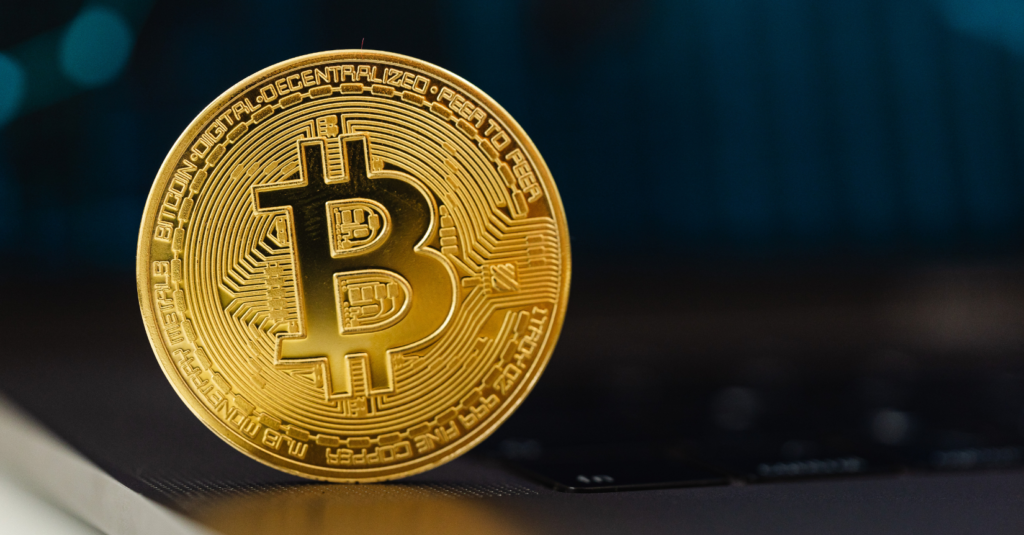
Web3 and Blockchain: Bahrain’s Crypto-Ready Future
The third wave – Web3/blockchain – is gaining institutional support in Bahrain. The kingdom has long nurtured a progressive regulatory environment: it was one of the first in the region to license cryptocurrency exchanges and implement open banking[5]. Bahrain FinTech Bay’s 2024 roadmap emphasizes blockchain education and events, and just this year it signed agreements to advance blockchain innovation and growth in the Kingdom[5]. Local banks and startups are already exploring DeFi and tokenization use-cases from trade finance to asset registries.
Telecom leader stc Bahrain is taking the lead on Web3 infrastructure. In 2024 it partnered with Avalanche (a major blockchain platform) to launch an Avalanche Subnet in Bahrain[19]. More recently, stc teamed with Nirvana Labs to deploy Web3 cloud hosting in its data centers, aiming to make Bahrain a regional hub for decentralized technology[20]. stc’s executives explicitly say this moves aligns with Bahrain’s Vision 2030 goal of becoming a tech innovation hub. They emphasize that such partnerships “enable local and regional companies to harness the power of decentralized technologies” and compete on a global scale[20].
With this momentum, Bahraini entrepreneurs should explore how blockchain can transform industries. Possibilities include: – Decentralized finance (DeFi): Smart contracts for real estate transactions, payroll, or supply-chain finance can boost transparency and efficiency.
– NFTs and digital marketing: Creative firms and museums might issue NFTs tied to Bahraini art or heritage, engaging a global audience.
– Supply chain tracking: Bahrain’s petrochemicals and logistics sectors can pilot blockchain for provenance and anti-counterfeiting.
– Digital identity and data: Future e-government services could leverage blockchain for secure citizen IDs or records, building on Bahrain’s tech-forward governance.
The Gulf’s Web3 ecosystem is nascent but accelerating. EchoSphere itself is part of it, producing thought leadership on tokenization and data decentralization. As Bahrain continues to attract projects (for example, Ripple’s partnership with Bahrain FinTech Bay on digital assets), local companies must keep up. Participating in hackathons and pilot programs (such as stc’s Web3 launchpad) will be critical.
Blockchain and Web3 open up transformational business models. Bahraini firms should be early movers: experiment with blockchain pilots, form consortia (as with stc’s partnerships), and ensure compliance with new regulations. For instance, collaborating with FinTech Bay or industry consortia can help unlock government support for Web3 initiatives. In doing so, Bahrain’s tech community will reinforce the kingdom’s reputation as the Gulf’s crypto-friendly innovation engine[5][20].
EchoSphere Technologies: Bahrain’s Digital Innovation Catalyst
EchoSphere Technologies is a homegrown example of how Bahraini companies are pioneering these trends. With divisions in Innovative Education and Smart Operations, EchoSphere blends hardware and software to deliver VR/AR solutions across industries. Their tech blog highlights real-world applications: from VR flight simulators that train pilots with immersive safety drills[8][12], to virtual labs and gamified learning environments for students. EchoSphere also covers real estate insights: its analysis shows VR tours cut sales times and increase closing rates[16]. While we do not have space to detail all their projects, EchoSphere’s work exemplifies Bahrain’s digital future in action.
As a Bahraini innovator, EchoSphere is open for collaboration with startups and established firms alike. They have noted how XR technologies reduce costs and risks while accelerating learning cycles[21] – key benefits for any industry exploring new tech. For example, their virtual reality training for aviation saved millions compared to traditional simulators, proving ROI on immersive tech[22][23]. Entrepreneurs can tap EchoSphere’s expertise to pilot VR education programs, create AR product demos, or build metaverse environments for retail. In each case, their track record shows that immersive tech is not just a novelty but a strategic tool to increase customer engagement, shorten sales cycles, and develop skilled talent[7][16].
Strategic Recommendations for Bahraini Entrepreneurs
To stay competitive, Bahraini business leaders should proactively embrace these technologies. Key steps include:
- Invest in Talent and Training: Allocate budget and time to upskill your team in AR/VR and blockchain. Collaborate with local universities and institutes (like the new VR lab at University of Bahrain[10]) to train developers and engineers.
- Pilot Proof-of-Concept Projects: Start small by launching pilot programs. For example, run a VR safety training for factory workers, or create an AR-enhanced product catalog. Use feedback to iterate.
- Leverage Government and Ecosystem Support: Take advantage of Bahrain’s supportive environment. Apply for Tamkeen grants or accelerators focused on tech (such as the SC Women in Tech and fintech residencies). Attend Bahrain FinTech Bay and Digital Innovation Expo events to network with investors and tech partners[24][5].
- Partner with Tech Innovators: Work with local tech firms like EchoSphere or global platforms (e.g. Salesforce, Microsoft, AWS) that are building AR/VR and Web3 offerings. Joint ventures or strategic alliances can de-risk R&D.
- Integrate Across Business Units: Don’t silo these technologies. Use VR/AR for both external marketing (virtual showrooms, training demos) and internal efficiency (digital twins for operations, VR meetings). Launch cross-functional “innovation squads” to explore use-cases in every department.
- Stay Agile and User-Focused: Ensure any digital initiative is driven by customer or employee needs. For instance, test metaverse experiences with focus groups, or survey tenants for real-estate VR preferences. Adopt agile development to fine-tune solutions.
- Monitor Regulatory Trends: Keep up with Bahrain’s Web3 regulations and standards. Engage with the regulators (e.g. Central Bank of Bahrain, BFB) to shape policies that encourage innovation, as they have done with open banking and crypto licensing[5].
By following these strategies, Bahraini businesses – from startups to established enterprises – can harness AR/VR, metaverse and Web3 to open new revenue streams and efficiencies. The Gulf is charting this path: companies that hesitate risk being leapfrogged by more nimble competitors.
Call to Action: Shape Bahrain’s Digital Future Together
The time to act is now. Bahrain’s innovation ecosystem is accelerating, and pioneers are needed. We encourage entrepreneurs and investors to reach out to EchoSphere Technologies to explore partnerships. Whether it’s co-developing a virtual reality training program, backing a Bahraini metaverse startup, or deploying a blockchain proof-of-concept, there are abundant opportunities in the Kingdom. By collaborating and investing today, you can be part of Bahrain’s digital transformation and reap the rewards of a technology-driven economy.
Join us in building the future. Contact EchoSphere and dive into Bahrain’s AR/VR, Metaverse and Web3 initiatives – and help lead the Gulf into a bold new digital age[8][5].
Sources: Bahrain’s tech initiatives and market data are detailed in reports by Gulf Magazine, Oxford Business Group, and industry research[9][3][6][25][19][20][5], as cited above. These underscore the practical business case for embracing AR/VR, Metaverse and Web3 in Bahrain today.
[1] Top 10 metaverse projects in the UAE, including world firsts | Business Chief UK & Europe
[2] Ways the Metaverse Is Transforming the Gulf Region
https://gulfmagazine.co/ways-the-metaverse-is-transforming-the-gulf-region/
[3] [4] [11] [24] Bahrain Digital Innovation Expo Showcases Tech Lifestyle
https://gulfmagazine.co/bahrain-digital-innovation-expo-showcases/
[5] Bahrain FinTech Bay reveals 2024 strategy for innovation and growth
[6] Virtual Reality Labs Bahrain Transform Interactive Learning
https://gulfmagazine.co/virtual-reality-labs-bahrain-transform/
[7] Virtual Reality: Innovation in Education Technology –
[8] [12] [22] [23] From Cockpit to VR: Journey of Training Tomorrow’s Commercial Pilots – EchoSphere Technologies
https://echospheretech.co/from-cockpit-to-vr-journey-of-training-tomorrows-commercial-pilots/
[9] How Bahrain 5G Expansion Is Transforming Connectivity
https://gulfmagazine.co/how-bahrain-5g-expansion-is-transforming/
[10] How institutions of higher learning are embracing the metaverse – Saudi Arabia 2022 – Oxford Business Group
[13] [14] [21] Meet Mavi, the Bahraini startup keen on sparking a new AR/VR revolution – StartUp Bahrain
[15] Virtual Reality Tours: Buy Dubai Off-Plan Properties from Anywhere in 2025
https://prelaunch.ae/virtual-reality-tours-how-to-buy-dubai-off-plan-properties-from-anywhere/
[16] [17] [18] [25] GCC Real Estate through VR Lens – EchoSphere Technologies
https://echospheretech.co/gcc-real-estate-on-through-vr-lens/
[19] stc Bahrain and Avalanche forge partnership to drive Web3 progress in the Middle East | Avax.network
[20] stc Bahrain partners with Nirvana Labs for Web3 Blockchain development
https://laraontheblock.com/stc-bahrain-partners-with-nirvana-labs-for-web3-blockchain-development/

